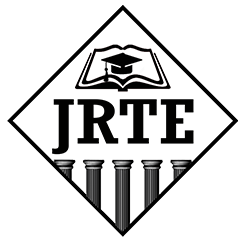Downloads
This paper examines the potential of Building Information Modeling (BIM) to enhance economic sustainability in Sri Lanka’s residential construction sector by building upon an existing dissertation and relevant literature. A mixed-methods approach comprising a structured questionnaire administered to 25 industry professionals and in-depth interviews with three experts (a civil engineer, a structural design engineer, and a quantity surveyor) yields empirical insights into the challenges hampering BIM adoption, perceived benefits, and readiness for integrating BIM with lifecycle cost analysis (LCC), life cycle assessment (LCA), and complementary digital technologies such as artificial intelligence (AI), Internet of Things (IoT), virtual reality (VR), and augmented reality (AR). The findings indicate that despite widespread recognition of BIM’s capacity for cost and time optimization, waste reduction, and improved decision-making, significant obstacles persist, including high upfront costs, limited formal training opportunities, insufficient government incentives, and interoperability issues. Respondents nonetheless express a strong willingness to adopt BIM when adequate support structures are in place. In response, the paper proposes a Residential Building-related Economic Sustainability Assessment (RBESA) framework that systematically integrates BIM-driven cost quantification with LCC and sustainability metrics, thereby guiding residential projects toward long-term economic viability. Strategic recommendations target policymakers, industry stakeholders, academia, and software providers: these include establishing national BIM standards, subsidizing software and training, embedding BIM education in curricula, promoting demonstrative case studies, fostering collaborative networks, and developing localized tools. The results underscore that coordinated interventions can position BIM as a cornerstone for advancing economic sustainability in Sri Lanka’s residential construction, providing empirical validation through pilot projects and continuous feedback loops.
Written by JRTE
ISSN
2714-1837
Archives
| M | T | W | T | F | S | S |
|---|---|---|---|---|---|---|
| 1 | 2 | 3 | 4 | 5 | ||
| 6 | 7 | 8 | 9 | 10 | 11 | 12 |
| 13 | 14 | 15 | 16 | 17 | 18 | 19 |
| 20 | 21 | 22 | 23 | 24 | 25 | 26 |
| 27 | 28 | 29 | 30 | 31 | ||
Our Visitors






 Users Today : 64
Users Today : 64 Total Users : 47033
Total Users : 47033 Views Today : 125
Views Today : 125 Total views : 110800
Total views : 110800 Who's Online : 2
Who's Online : 2 Your IP Address : 216.73.216.153
Your IP Address : 216.73.216.153

